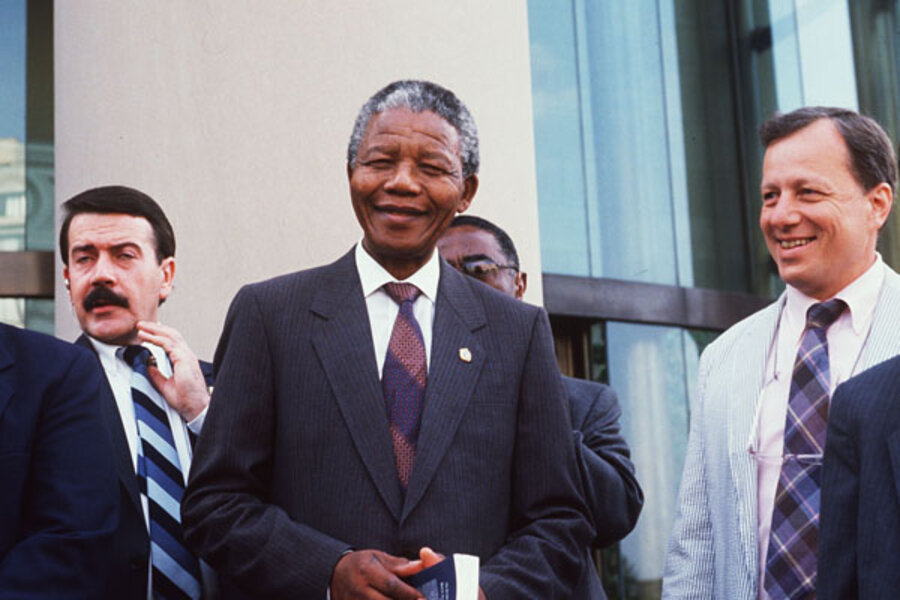After Mandela's release from prison, he began a relentless global public relations campaign for the South African freedom movement, circling the globe in an effort to convince world leaders that its guerillas and revolutionaries were ready for the far more buttoned-up task of ruling a nation. In June 1990, he traveled to the US for a flurry of fundraisers, TV appearances, and meetings with government officials. As Monitor reports explained:
In sweeping through Western nations only months after his release from prison, Mandela is likely seeking to consolidate the role of the African National Congress as the political counterweight to [the regime of white President F.W.] de Klerk. The ANC "now has to perform like a legitimate political party. Mandela needs support just like Gorbachev, and going abroad is a way to get it," says Thomas Mahoney, a South Africa expert at Vanderbilt University.
One of Mandela's most crucial diplomatic tasks was to convince US leaders that despite the white government's preliminary moves towards ending apartheid – Mandela's release among them – they should not yet lift economic sanctions against the country.
A confrontation over sanctions could lie in the future however, with the Bush administration urging relaxation against a Congress that has yet to be impressed by Mr. de Klerk's moves.
Mandela's visit is likely to only solidify feeling in Congress against the de Klerk government. The fight against apartheid has penetrated into American domestic politics perhaps more than any other foreign-policy issue, and Mandela himself has become the greatest hero in black America since Martin Luther King Jr.
Not everyone in the US, however, was ready to hail Mandela as a hero.
Critics agree Mandela is an historic figure, but caution that among other things he has yet to repudiate the use of violence against civilians, has hailed South Africa's Communist Party, and is part of an organization involved in black-on-black tribal violence.
"Americans should praise Mandela for his lifelong role in opposing apartheid, but they should not think that he alone holds the keys to a democratic South Africa," writes Michael Johns, a Heritage Foundation policy analyst.








